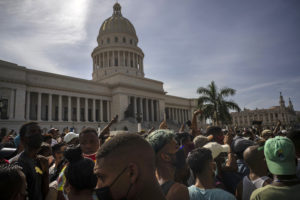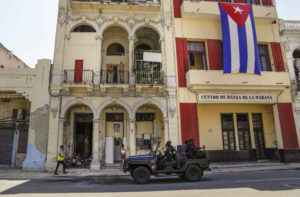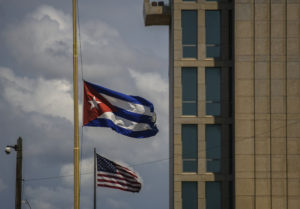The Cuban government is allowing for new debates, but limits remain
Over the past few years, the line for speech critical of the government has been incrementally pushed forward in Cuba. This has happened as the government has implemented reforms, as the private sector has grown, and as the country has re-established relations with the United States.
As Cuba gradually allows more political debate, the conversation is no longer entirely polarized between dissidents and government backers. Civil society now includes independent organizations that are finding a voice on the internet and occupying a more middle ground. How far they can go, though, is unclear.
In this episode of Latin America Today, the WOLA podcast, Senior Associate Adam Isacson and Program Officer Sarah Kinosian take a look at the dynamics behind and within this new space. This podcast is the second in a three-part series about Cuba. Next week’s episode will look at the role and dynamics of U.S. policy. Our first episode in the series covered Cuba’s Changing Economy.
This podcast features excerpts of interviews with:
-
WOLA Senior Associate Marc Hanson,
-
WOLA Senior Associate Geoff Thale,
-
Ailynn Torres, Roberto Veiga, and Lenier Gonzalez of Cuba Posible,
-
Bill LeoGrande of American University, and
-
Young Cuban professional Enrique Pozo
Download 13-07-2016 (22.1 MB)
Subscribe to WOLA’s “Latin America Today” podcast via RSS or iTunes.



